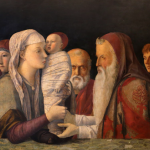The best-ever death metal band out of Blogwatch…
Real review of, seriously, maybe seven or eight Mountain Goats cds once I’ve finished listening to them. For now you get a blogwatch.
“How to Become an Author, In Five Incredibly Difficult Steps.“ The usual Cracked.com disclaimer, but I loved #2 a lot, and the point about needing a huge amount of research in order to write fiction is also really good. #1 should be skipped unless you really, really want to feel bad about your bank balance.
Guest posters at Megan McArdle’s site:
On April 20, 1980, Fidel Castro made an important contribution to the social sciences. His unexpected declaration that the port of Mariel would be temporarily open to any Cubans seeking to flee the island served as a natural experiment that has helped labor economists understand the impact of immigration. In his now classic paper, economist David Card convincingly showed that the massive influx of 120,000 Cubans increased the labor force of Miami by 7% yet had almost no impact on the employment or wages of natives.
This result is probably shocking to many, and certainly runs contrary to the popular but unfortunate myth that immigrants “steal our jobs”. But while this study is an important result in the literature, it is not an isolated one. Most research on immigration shows small or zero impacts on unemployment and wages. This, however, does present something of a puzzle: if immigration increases labor supply, then why didn’t wages fall and unemployment rise? How was it that the labor market in Miami was able to absord so many new workers?
more; mostly interesting to me because I care about Mariel, but that of course raises the question: Does US growth depend on immigrants a) fleeing sufficiently-fleeable-hell and b) not assimilating to our awful demographics once they gain some economic success?
Sublimity Now:
While she was doing this, she went on for a while about how lucky she is, given that some people get shingles all over their bodies, and she only has to deal with an useless right arm, and apologized profusely for not being able to prepare a duck dinner for my brother before he ships out to Quantico.
Please remember her in your prayers.
it is okay she eats so slow–at least she eats!
and even moreso:
Point is, my father thought I was literally plowing a field instead of being vaguely emo. He is the best. May we all strive to think so well of our loved ones!
The Groom’s Family:
This sentiment, i suspect, is due no less to the sheer fact of my being a Jew than to my personal biography. Any Jew, with the questionable exception of the generations born in Israel, is always an immigrant, caught in a complex relationship between a home from which he is distanced by both space and historical time, and a current residence from which he is separated by a paper-thin but surprisingly resistant mental wall. He has no choice but to be a cosmopolitan, and there are three general ways in which this cosmopolitanism may manifest. …
The religious Jew, as the monk, is a cosmopolitan in that he makes do everywhere and belongs nowhere.
The progressive secular Jew is a cosmopolitan in a very different way. Like his religious brother, he never has the pleasure of belonging to a place; as the Nazi episode among others illustrates, his decision to treat a place as his home means very little to others and to history. Unlike his religious brother, however, he does not see his loneliness in the midst of the nations as a prelude to salvation; it is rather a source of confusion and often pain that he must learn to mitigate.
more; emphasis added because I genuinely believe that sabra Jews often carry the marks of displacement without the humility forced by the humiliation of needing to understand others’ perspectives in order to survive–or, to put it more bluntly, I sometimes think that growing up in Israel is bad for Jewish children. Jews must raise their children in a Jew-hating world; ideologies of Jewish superiority are one obvious path. (And, for contingent 20th-century reasons, often an atheist path which leads to dissolution of Jewish identity in the later generations.)
The Rat:
It reminded me of some of the things we were taught in hospice training; and also of a line from Paul Claudel that MFB quoted to me in a letter well over a decade ago, but that’s stuck with me ever since (even though I’m not Christian): “Jesus did not come to remove suffering, but to fill it with His presence.” The principle holds whatever your religious affiliation (or lack thereof), and also seems to me one that might be particularly useful in this country, where even the most well-meaning people—Christians included—can often have trouble negotiating secondhand tragedy. We’re a nation of fixers, and also of Pelagians—plus there’s so little guidance out there about this kind of thing.
There are so few things we can ever really do for another person, however much we like to think we can, and however many fairy tales/Hollywood scripts/etc. are themed around rescue. If you know a survivor (esp. a recent survivor) of trauma, do have a look at this list, and others like it
.
more















